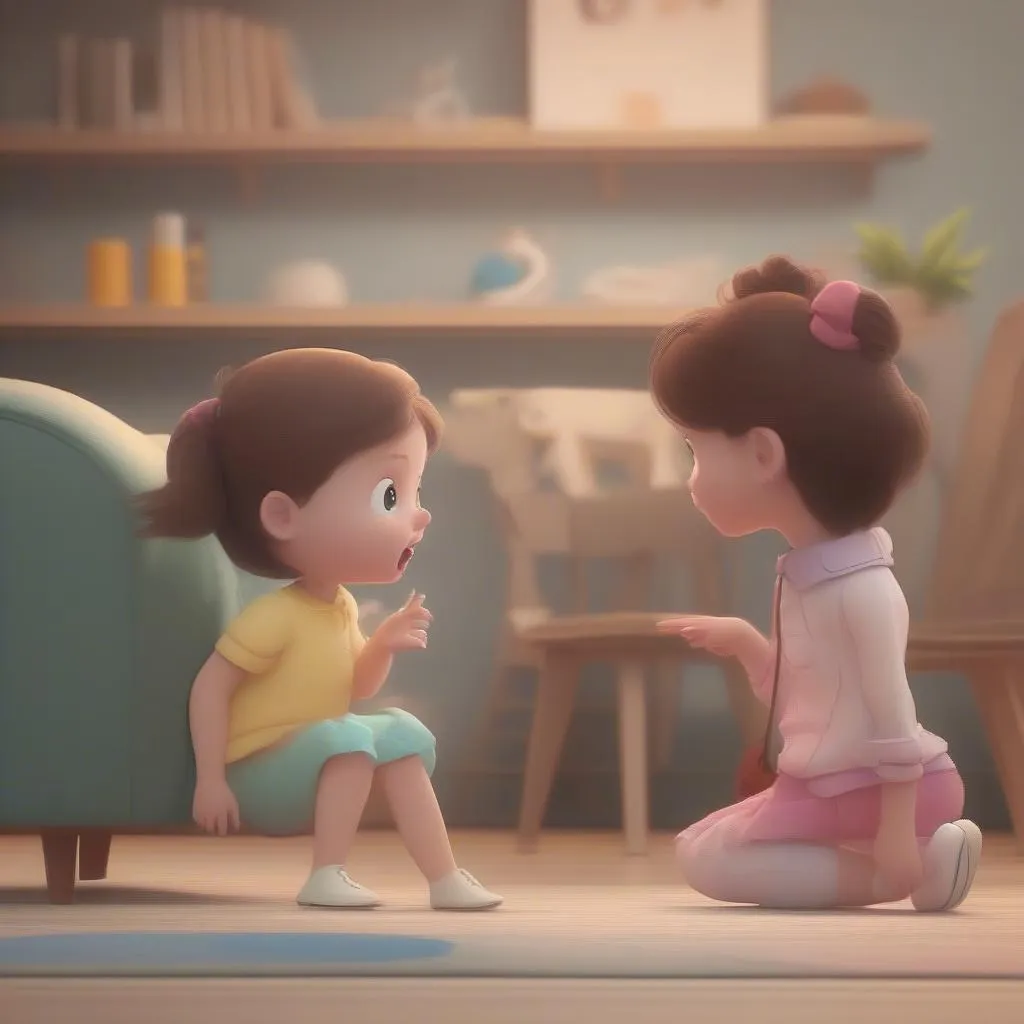As the saying goes, “A straight tree is not afraid of standing dead.” From a young age, equipping children with essential life skills is crucial. It helps them confidently navigate life and become responsible citizens. So, what are the essential life skills to teach a 4-year-old? Let’s explore in this article!
Essential Life Skills for 4-Year-Olds
1. Communication Skills: Speaking, Listening, Sharing
At age 4, children begin to develop basic communication skills. Teaching effective communication helps them confidently express themselves, connect with others, and better integrate into the community.
“Kind words are worth much and cost little,” teaching children to speak politely and use language appropriate to each situation is essential. Children need to be taught how to use greetings, thank yous, apologies, and polite language in communication.
“Seeing is believing,” teaching children how to listen is extremely important. Parents should take time to listen to their children share, show empathy, and offer helpful advice.
“Helping one another is the way of humankind,” teaching children sharing skills is also necessary. Parents can involve children in charity activities like donating toys and clothes to underprivileged children, helping them understand the meaning of sharing and love.
2. Self-Reliance Skills: Eating, Personal Hygiene, Time Management
Self-reliance skills help children develop independence, autonomy, and self-confidence in life.
“Hunger is the best sauce,” teaching children to eat independently, feed themselves, and hold a cup to drink helps them practice dexterity and enhance their self-service abilities.
“Cleanliness is next to godliness,” teaching children personal hygiene is extremely important. Children need to be taught how to bathe, brush their teeth, change clothes, be neat and tidy, and maintain personal hygiene daily.
“Time is money,” teaching children time management helps them organize their work, study, and play reasonably. Children need to be taught how to plan and use a clock to manage time effectively.
3. Social Skills: Cooperation, Sharing, Helping
Social skills help children better integrate into the community and build positive relationships with those around them.
“Unity is strength,” teaching children how to cooperate with friends in play and learning activities is important. Children need to be taught how to share toys and utensils, solve problems together, and help each other when needed.
“Helping one another is the way of humankind,” teaching children the skill of helping others around them and sharing with those in difficulty is crucial. Children can participate in charity activities, helping the elderly and disabled children.
4. Thinking Skills: Problem Solving, Creativity
Thinking skills help children think independently, creatively, and solve problems effectively.
“Necessity is the mother of invention,” teaching children how to think and find ways to solve problems is important. Parents can create hypothetical situations for children to think for themselves, find solutions, and practice problem-solving skills.
“Art is a creation,” encourage children to be creative and freely express themselves through activities like painting, coloring, and making toys.
5. Emotional Skills: Love, Empathy, Emotional Control
Emotional skills help children develop emotions positively, while also forming the ability to control emotions and understand the emotions of others.
“Love is the most precious thing,” teaching children how to love and care for family and friends is vital. Parents need to spend time with their children, show affection, and share touching stories to help them understand the value of emotions.
“To understand all is to forgive all,” teaching children how to understand the emotions of others and empathize with those in difficulty is important. Parents can create situations for children to put themselves in the shoes of others, feel and think about their emotions.
“Control yourself,” teaching children how to control emotions, avoid anger and shouting is necessary. Parents need to teach children how to handle situations calmly and use positive language to resolve conflicts.
Expert Advice
According to education expert Mr. Nguyen Van A, author of the book “Educating Life Skills for Preschool Children”: “Teaching life skills to children should be done gently, appropriate to the psychology and learning ability of children. Parents should create fun, educational activities for children to absorb knowledge naturally and effectively.”
What Do You Need To Learn About Life Skills To Teach 4-Year-Olds?
- How to teach children life skills effectively?
- What games and activities are suitable for teaching children life skills?
- Which life skills should be taught first, and which later?
- How to make children interested in learning life skills?
- What are reputable life skills education centers for 4-year-olds?
Contact Us For Consultation and Support
Please contact us, SOFT SKILLS, for advice and support on educating life skills for 4-year-olds. Our team of experts is always ready to assist you!
Phone Number: 0372666666
Address: 55 To Tien Thanh, Hanoi
Please share this article with your interested friends to join hands in helping Vietnamese children develop comprehensively!
